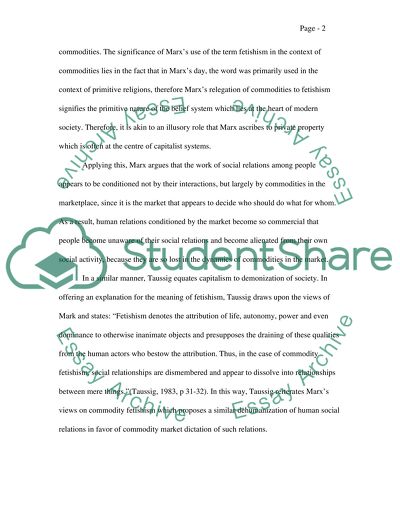Cite this document
(The Influence of Marxist Theory in 'The Devil and Commodity Fetishism Book Report/Review, n.d.)
The Influence of Marxist Theory in 'The Devil and Commodity Fetishism Book Report/Review. Retrieved from https://studentshare.org/culture/1542866-the-influence-of-marxist-theory-in-the-devil-and-commodity-fetishism-in-south-america-by-michael-taussig
The Influence of Marxist Theory in 'The Devil and Commodity Fetishism Book Report/Review. Retrieved from https://studentshare.org/culture/1542866-the-influence-of-marxist-theory-in-the-devil-and-commodity-fetishism-in-south-america-by-michael-taussig
(The Influence of Marxist Theory in 'The Devil and Commodity Fetishism Book Report/Review)
The Influence of Marxist Theory in 'The Devil and Commodity Fetishism Book Report/Review. https://studentshare.org/culture/1542866-the-influence-of-marxist-theory-in-the-devil-and-commodity-fetishism-in-south-america-by-michael-taussig.
The Influence of Marxist Theory in 'The Devil and Commodity Fetishism Book Report/Review. https://studentshare.org/culture/1542866-the-influence-of-marxist-theory-in-the-devil-and-commodity-fetishism-in-south-america-by-michael-taussig.
“The Influence of Marxist Theory in 'The Devil and Commodity Fetishism Book Report/Review”, n.d. https://studentshare.org/culture/1542866-the-influence-of-marxist-theory-in-the-devil-and-commodity-fetishism-in-south-america-by-michael-taussig.


